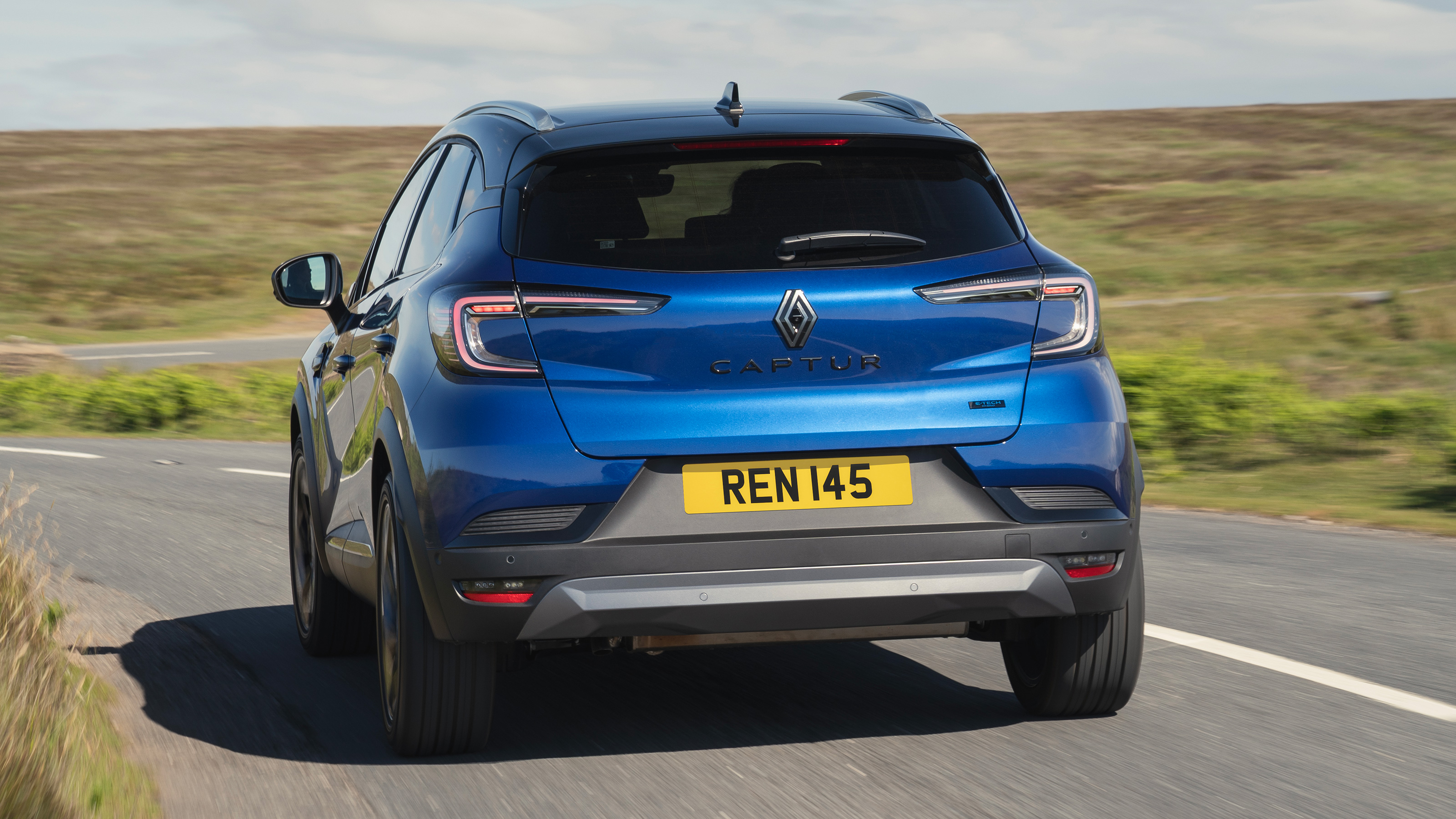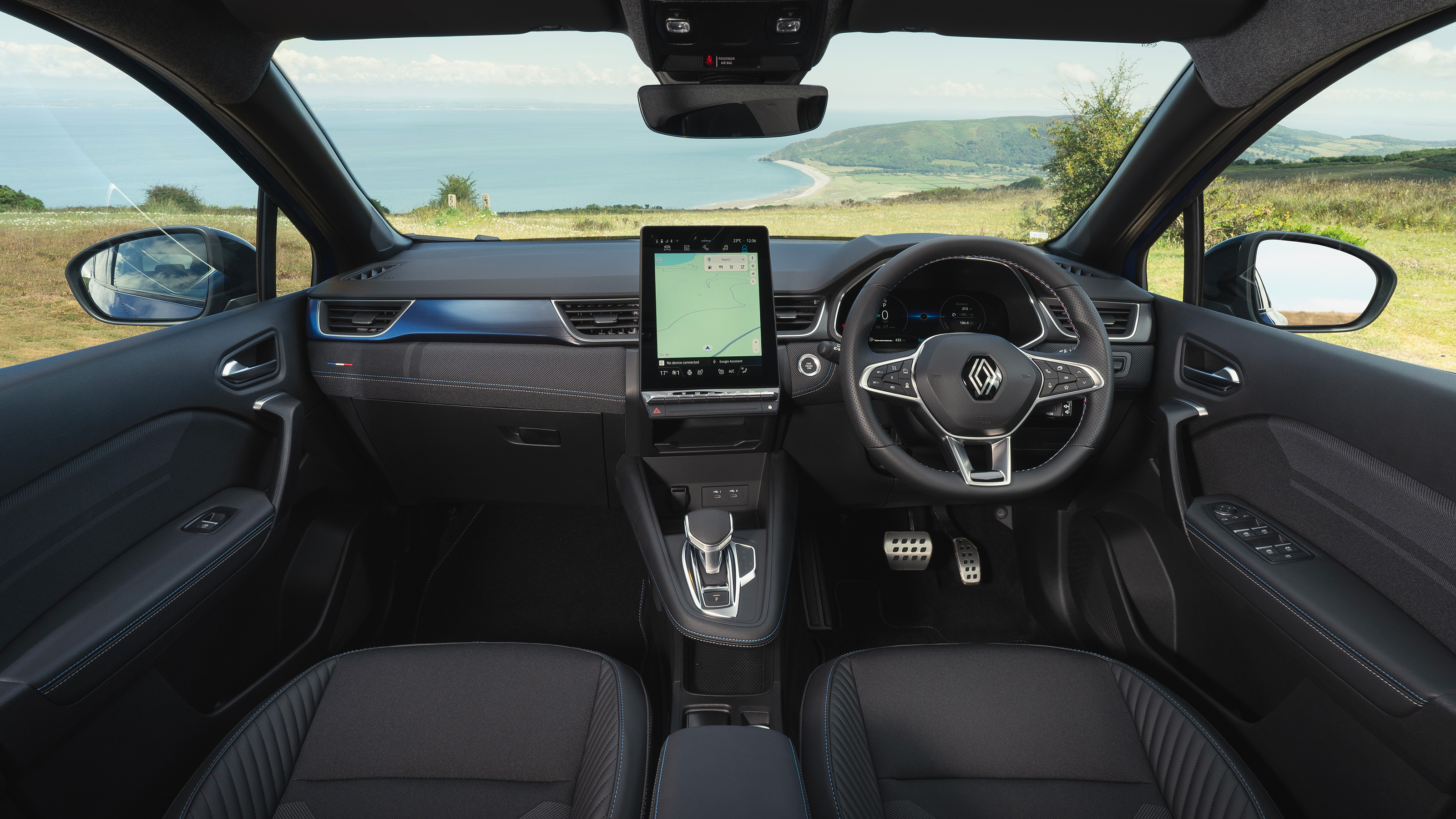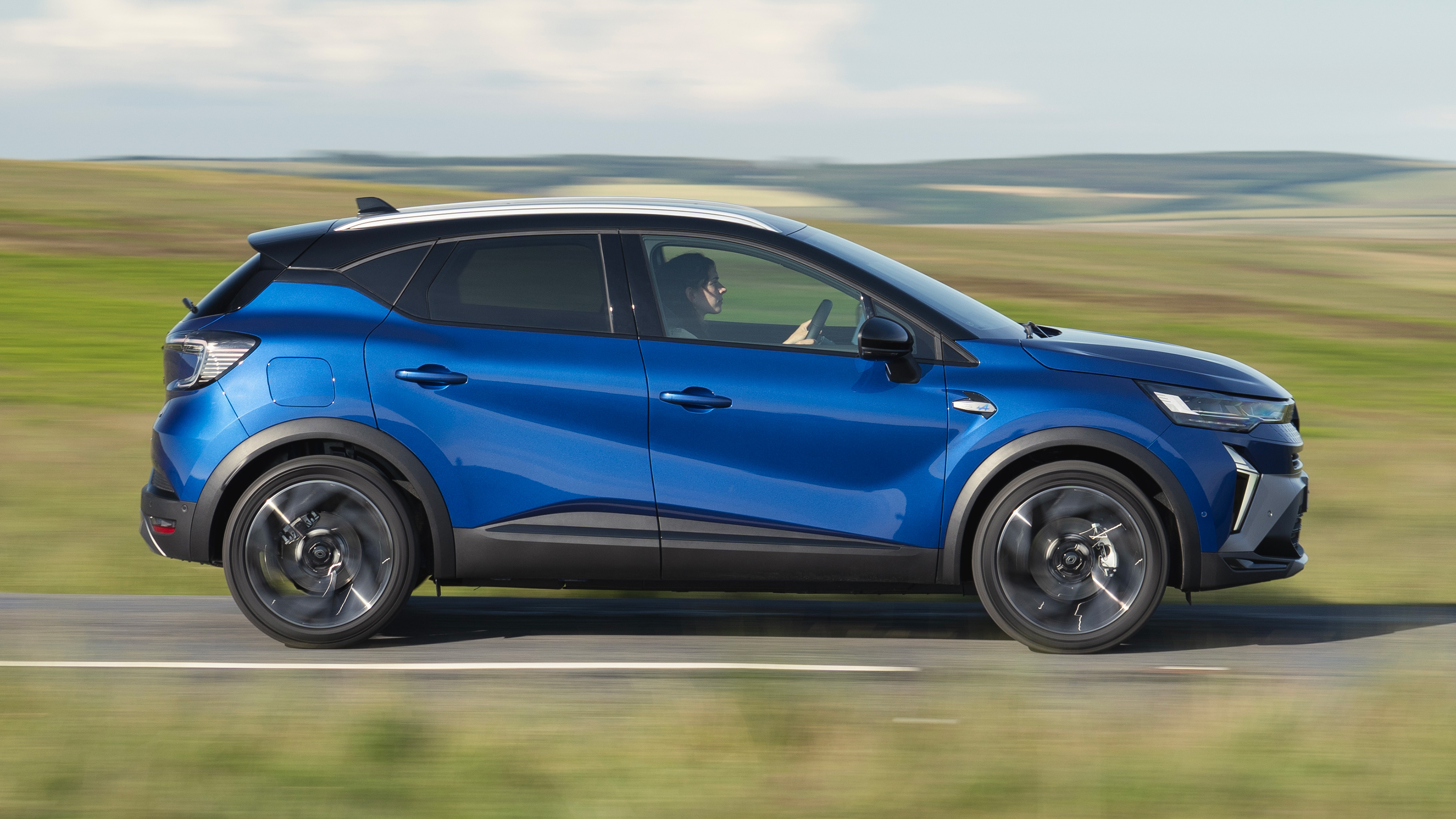
Interior
What is it like on the inside?
Look away now if you’re the proud owner of a Mk1 Captur. This cabin knocks the old car’s into a cocked hat. Let’s start with the seats: they’re superb. Volvo-esque in design, high quality in fabric and supremely comfortable. The own goal is the adjustment lever on the non-electric versions isn’t really operable by anyone who can’t fit their hand into a Pringles tube, which rules out most adults.
The facelift has introduced a bigger, 10.4in touchscreen, with Google built into the interface (on non-boggo versions): previously there was a smaller screen for the base model, but that’s been binned off and the larger one is now standard across the board. It’s the centrepiece of the cabin and stands tall and proud, angled slightly towards the driver. It looks fab, with crisp graphics and a layout that doesn’t need a PhD in astrophysics to understand. Unlike the old one.
Also standard are four USB-Cs and a wireless phone charger, though the 10.25in digital display is only fitted to mid- and top spec Capturs.
And what of ‘materials’?
The general material quality has skyrocketed. The lower plastics are hard, predictably, but Renault has made an effort to introduce recycled fabrics with which to line the upholstery. The top-spec car includes – wait for it – ‘over 26 per cent recycled and recyclable fabrics’. Erm, that doesn’t sound like a lot, does it?
The more demure finishings have replaced the soft touch squidge fronting the dash that, if we’re being unkind, felt a tad ‘retirement home liquid-repellent chair’. But it looked way more visually pleasing than most of the class and we’re a little sorry to see the splash of colour moved on. The steering wheel and gear lever feel substantial in the hands.
Satisfied with how it feels well screwed together, you’ll explore the storage on offer. Renault’s very pleased with the 24.7 (yes, point seven) litres of stowage in the cabin. And indeed, the door bins are decent. If you have the automatic hybrid, the ‘floating’ centre console opens up more space where the gear linkage doesn’t have to go.
The catch is the glovebox. On the left hand drive Capturs, there’s an enormous drawer of storage. Truly, it’s like a filing cabinet, big enough not just for gloves but for Sir Ranulph Fiennes’ winter wardrobe. But a sloppy right-hand drive conversion means the glovebox is smaller for Brits, because Renault has put a fusebox in the way. Though it's not the only carmaker guilty of this.
Is there enough room elsewhere?
Whichever side the steering wheel is on, you’ll not be short of space, save for up front where the shape of the transmission tunnel seems to invade legroom just a tad – the footwells seem narrow to the lanky.
In the back, there’s enough room for adults. But there should be, as the new Captur’s longer, wider and taller than the old one. This mission creep is great for brochure boasts like an extra 15mm of elbow room between the front seats, but the constant swell of even small cars isn’t making lives in our congested towns any easier. This isn’t a hatchet job on Renault – the whole industry is guilty.
Oh, and one additional word of warning – while the petrol cars have 422 litres of seats up luggage capacity (you can boost this to 536 by sliding the rear bench forward), the hybrid has to make do with 326/440 litres due to its battery gubbins. Ouch. And it’s not like it’s a PHEV either.
That puts it on par with the Juke, but miles behind a Puma for volume, which also gets that MegaBox in the boot floor. Knock the back seats down and you’ll have 1,363 litres to play with in the petrol, or 1,276 in the hybrid.
Featured

Trending this week
- Car Review
BMW iX3






